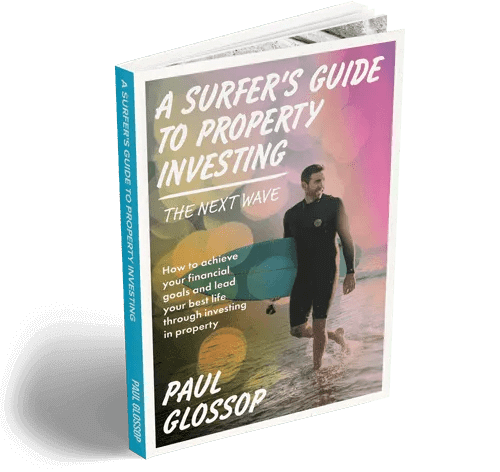Paul Glossop: Good day guys and welcome to Pure Property Investment one on one. Today I’m joined by Aaron Christie-David. Aaron is the director of Atelier Wealth. He’s a mortgage broker. He’s also a Property Investor. So, a lot of experience in every facet of that finance game.
One thing that I would like to speak about with you Aaron today, is probably a little bit more in your realm than mine is when an investor or an owner-occupier is looking to buy their home or their investment property, there’s a lot of talk about credit scores and about the strength of your application and some things that I think probably boost people’s chances of getting financed as opposed to hinder them. And most of it is unknown to the actual consumer. And then the problem is it’s kind of the dark web of everything that happens behind the screen and when a computer says no, people are like, well I really don’t know why or what I could have done.
I’m assuming that you probably have some insights and some tips for people to think about when they’re putting that application up and things they can do to better their chances of getting finance for that investment property or that owner-occupied property.
Aaron Christie-David: Get to know your credit file. That’s what we tell clients. Understanding your credit score is one step but also what’s in your credit file, which is all the applications you made for previous loans, credit cards, and utilities such as phone and electricity as well. So, that’s step one.
Step two is full disclosure around all your assets and liabilities and debts. You can imagine that, if an application goes to a bank, and the credit assessor looks at that and sees that there is undisclosed debt, now they’re looking for reasons to kind of say no or decline. Let’s say the unfortunate happens and the application gets declined, and now we’re going to go to the next bank. That bank is going to ask, “What has happened to that previous inquiry as well?” You don’t really want to go and say that I got declined because that is going to trigger a red flag. So, what we do is get the application right to begin with. Give it as much information as you can. You may think that we’re asking for a lot but that’s essentially what the banks want. They want to know everything because they’re lending you a fair bit of money.
And then the next step is get to know your broker or your banker. And make sure that they are disclosing everything as well, not just to get that loan to service with the banks. So what you may ask for is can I have a look at the application or the serviceability that is being submitted to the bank to make sure that it’s disclosing everything as well. And that’s going to give you the best chance to get your application approved with minimal re-work. And that is going to put your best put forward to get, not only your best borrowing capacity but in turn a better-quality application, in turn could get you a better rate with a better bank.
Paul Glossop: Yeah, got you. There are a few things that are takeaways. And this is one, full disclosure is key because even if you don’t disclose it, it will be all found out, similar to not disclosing certain tax aspects with the ATO and then you think you can cheat but ultimately it’s going to work to your detriment because when they do find it, and which they will. And then all of a sudden, they will say that you didn’t disclose this. Now, I’m going to look a little bit harder to see what else that you haven’t disclosed and you’re giving them the reason not to give you the money.
And secondly I think, getting ducks in the row before you put that application is absolutely key because what you don’t want is multiple applications that are denied that you probably could have run with your broker or your banker to say, let’s just see if I can service this, so if it’s a no, rather than put up that application and have a bad obviously bad review from your credit file, don’t put it on there, full stop. And knowing your leveraging borrowing power before you put that application in is absolutely vital in having that discussion for yourself is key.
Aaron Christie-David: Very much. There is no reason why you should be sending an application to a bank when you know it’s not going to service. So why run the gauntlet?
Paul Glossop: Absolutely, and I think that it is something that we do at Pure Property Investments when we talk about buying an investment property for instance is making sure people understand their borrowing capacity before we talk about objectives and strategies and property types. Because we can pontificate all we like, but if you don’t know truly what the banks are going to be prepared to lend you, and secondly, how that fits into your objectives, your cash flow and your strategy, then property might not even be the right asset. And if it is the right asset, then you need to know what kind of property does it need to be. What’s the price point? What’s the growth outcome that we want to get from it? What’s the cash flow that we need to service the loan? All these things come into play and are absolutely vital for us to talk about in the early stages before we buy the property and get loans approved.
So guys again, if you do want to contact Aaron or anyone in his team, his details are at the bottom of the screen. Likewise, with ours and we’ll catch up with you soon. Cheers!






